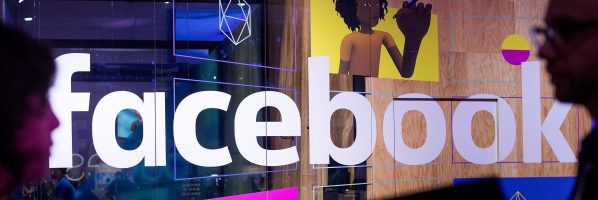What They’re Saying: Zuckerberg Testifies Amid Facebook Scandal

Earlier this week, ultra-rich and seemingly malnourished social media monolith Mark Zuckerberg testified before a continually befuddled U.S. Congress about the Facebook scandal regarding the private information of its unwary users.
However, despite getting turned into a plethora of memes during his time in Washington DC, it’s patently unclear what, if anything, will come as a result of the testimony, in which Zuckerberg said that data was even coming from users who didn’t actually have their own Facebook accounts.
Zuckerberg’s appearance before Congress came within the short window of time in which Cambridge Analytica—the other company embroiled in ongoing Facebook scandal—watched as its CEO Alexander Nix stepped down from his role. Check out how business schools are reacting to the recent news below.
In the first of two Congressional hearings this week, @finkd made no promises to support new legislation or to change how @Facebook does business, despite recent data breaches and controversy. https://t.co/72Xuv4DUge @ReutersBiz.
— MIT Sloan Experts (@mitsloanexperts) April 12, 2018
When I opened my file, it was like opening Pandora’s box. (Via @nytimes) https://t.co/VQl9Diu3pM
— MIT Tech Review (@techreview) April 12, 2018
Marketing and Strategy Professor Tim Derdenger talks with @Marketplace @Erika_Beras about the fallout from Facebook’s mishandling of user data and impact on other advertising revenue business models, like Google #TepperFaculty https://t.co/C30HJNX69T pic.twitter.com/74lOiPxOWH
— Tepper CMU (@teppercmu) April 11, 2018
.@profgalloway discusses the controversy surrounding #Facebook via @bsurveillance. Listen here: https://t.co/Yy9i9NQNKv
— NYU Stern (@NYUStern) April 11, 2018
Why was protecting data not a top priority at Facebook before the Cambridge Analytica scandal blew up? “This probably reflects on managerial experience” suggests @Wharton’s David Hsu https://t.co/vBXafqKdGW
— Knowledge@Wharton (@whartonknows) April 7, 2018
What They’re Saying: Business Schools Talk About Cambridge Analytica

Less than a week after Christopher Wylie, the whistle-blower in the ongoing Cambridge Analytica controversy, helped reveal the “dirty tricks” the data mining firm used to help swing elections in North America, Europe, and Africa—including the 2016 U.S. general election—business schools are reacting to the dynamic story.
In short, UK television outlet Channel 4 News filmed several Cambridge Analytica members in an undercover operation, in which they revealed numerous strategies, including: soliciting fake bribes, hiring prostitutes to seduce potential candidates in elections, and more. Company chief executive Alexander Nix was also filmed in the video, which you can watch here, boasted the company’s outreach methods on social media, saying: “It sounds a dreadful thing to say, but these are things that don’t necessarily need to be true as long as they’re believed.”
Another member of the Cambridge Analytica team also argued that they constructed President Donald Trump’s popular “crooked Hillary” campaign slogan from 2016.
Further, the controversy revealed how the company pilfered upwards of “50 million” Facebook profiles, most of which came without consent. Facebook and its founder Mark Zuckerberg played silent on the ongoing story up until March 21, plainly saying in a CNN interview “I’m really sorry that this happened.”
“Aleksandr Kogan, the data scientist who passed along data to SCL Group and its affiliate Cambridge Analytica, built a Facebook app that drew data from users and their friends in 2013. He was allowed access to a broad range of data at the time.
Though Kogan’s data was properly obtained, he breached Facebook’s policy when he shared that information with a third party, Facebook has said. When Facebook learned about the information being shared, it asked Cambridge Analytica to destroy the data. Cambridge said it had.”
Wylie notes that Cambridge Analytica probably never destroyed that data, inevitably leading towards the company’s involvement in the 2016 election. Several of the nation’s most prominent business schools talked about the story on Twitter, which you can read below.
André Spicer, Professor of Organisational Behaviour, on Cambridge Analytica and the possibility of tech companies being forced to expand regulations on privacy and social responsibility.
Read André’s comments: https://t.co/O5IAlUTD5t#cambridgeanalytica#cassbusinessschoolpic.twitter.com/GWv95RUIMc
— Cass Business School (@cassbusiness) March 21, 2018
“The really big issue is if regulators start questioning the business model of tech firms. Currently, consumers give away their data in exchange for free services, but what if regulators start putting a price on people’s data?” –
Cass Business Professor André Spicer
Q&A with @cyberlawclinic‘s @vivekdotca about Facebook and Cambridge Analytica, U.S. privacy protections, and the regulation of the tech industry https://t.co/LPKwwSKSXw
— Harvard University (@Harvard) March 22, 2018
The head of the European Parliament announced on Monday that the EU will investigate whether the data of more than 50 million Facebook users were misused when it was accessed by Cambridge Analytica! https://t.co/q946Hed417
— FOX MBA & MS (@FoxMBA) March 22, 2018
Cambridge Analytica said it’s suspending its CEO immediately and is launching an independent investigation into allegations it misused data on millions of Facebook users. https://t.co/EKeXiuHeQF
— MIT Tech Review (@techreview) March 21, 2018
